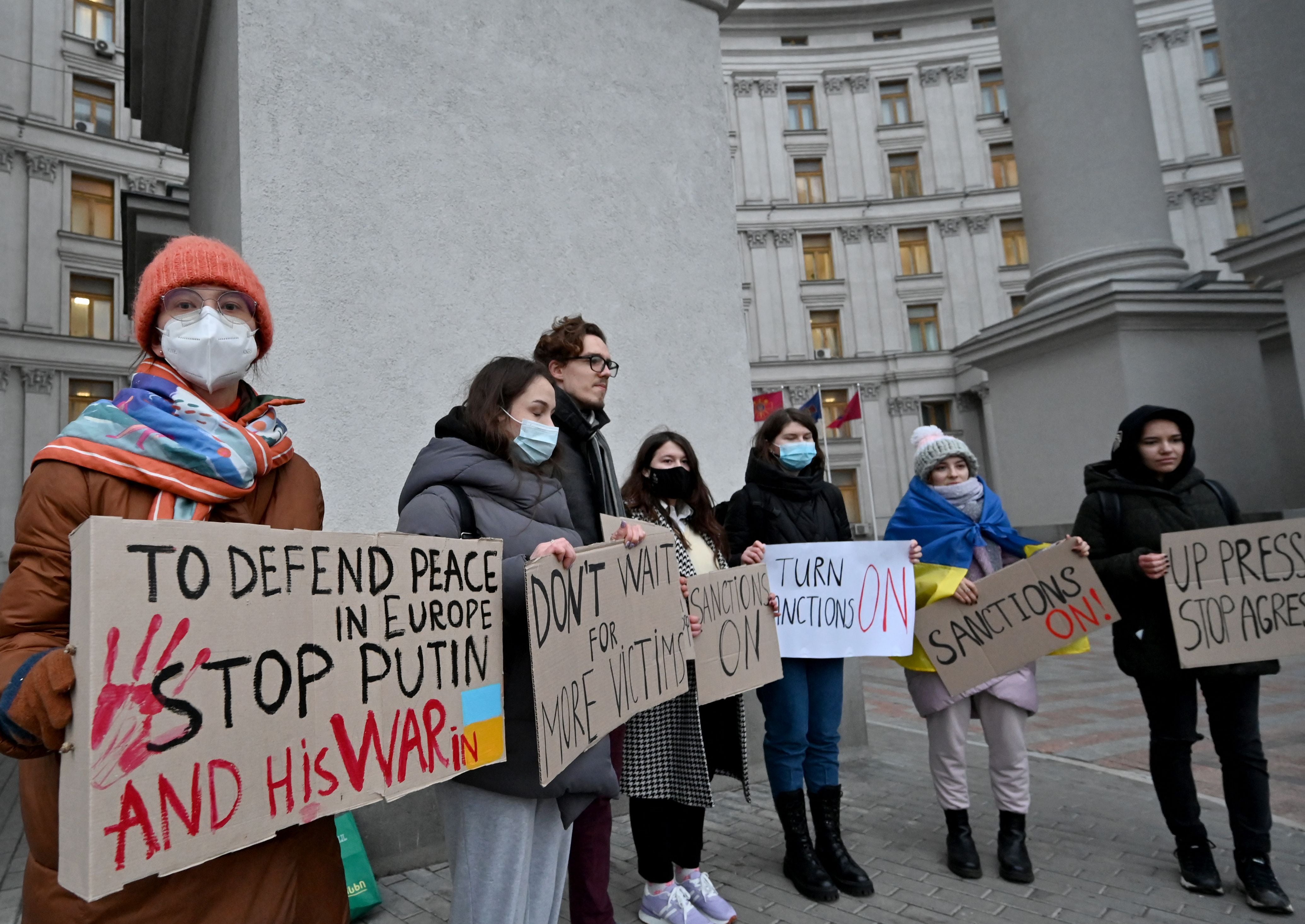UK sanctions are just a gesture – they won’t do much for families under fire in Ukraine
The initial measures Boris Johnson announced were akin to trying to respond to a tank with one of those wooden swords you can buy from the souvenir shop at castle museums


“Sanctions against Russia may have serious implications for the whole of Europe.” PS: That includes the UK for those who still don’t care to think of us as part of the continent.
I’ve lately been reading a lot of what we like to call “explainers”, which have been looking at the various options. They more or less all contain variations on that theme: this is what we could do but the problem with X or with Y or with Z is it will hurt and perhaps quite a bit.
The argument is most often deployed when it comes to the potential of banning Russia from the SWIFT international payments system. It is one of those little-known pieces of financial plumbing that suddenly finds itself thrust into the spotlight at a time like this, and everyone hurriedly tries to bone up – including ministers.
The Society for Worldwide Interbank Financial Telecommunication (SWIFT) operates a messaging system for the world’s banks, transmitting and recording millions of payment requests every day. Russia also has an alternative it can use, although it isn’t as good, and there is inevitably a debate over just how effective closing it off – a tactic previously used against Iran – would be with respect to Russia.
The chief concern raised, however, is the pain such a move would inflict upon Europe. It would make paying for Russian gas a whole lot more complicated. Parts of the continent are even more reliant upon the latter than we are. That pain would be shared widely. The same is true, as the explainers make clear, of some of the other more serious measures being contemplated.
But the west has been talking about waging economic war. Britain’s defence secretary Ben “full tonto” Wallace has been stomping up and down and digging deep into the sad guts of history to Tory cheers. Boris Johnson has been shaking his fist in the House of Commons while making dubious claims about Britain being “out in front” of this.
His display was quite ridiculous given the initial measures he announced were akin to trying to respond to a tank with one of those wooden swords you can buy from the souvenir shop at castle museums. Slapping a handful of banks already on the American naughty step, and doing the same to a trio of Putin pals among the oligarchs who’d presumably forgotten to put their donations to the Tory Party in the post? Please. That amounts to little more than a mild rebuke.
The uncomfortable truth about wars is that they inevitably inflict damage upon both sides, however much politicians like to pretend otherwise. It is no good threatening them if you are unwilling to accept that.
The dictator in Moscow surely understands gesture politics better than most. Right now, Putin is scorching the earth around him and shattering one of the longest spells of peace a war-torn continent has known. While the world has been enduring an unprecedented economic shock, he has built up his reserves, capitalising on high energy prices to do so (and playing a role in stoking them). If ever a demonstration of the folly of relying on imported hydrocarbons were needed, this is it.
To keep up to speed with all the latest opinions and comment, sign up to our free weekly Voices Dispatches newsletter by clicking here
Putin’s gamble is clear: with military action off the table, and justifiably so, the west won’t want to do what it takes to mount an effective economic response. It is a gamble he may yet win. Chancellor Rishi Sunak is already reportedly arguing against using SWIFT and he’s not alone. The UK and the EU are busily fretting about their “interests” and a couple of pips on their GDP while missiles are flying.
The concerns are, to a certain extent, understandable. The Covid shock they have been through is profound. Britain has a burden of debt to contend with as a result, and others are in the same boat. Russia is in a far better position on that front too. Inflation is, meanwhile, riding high to the extent that it is delivering real pain. The cost of living crisis is all too real.
But ask yourself this. How must this sound to a Ukrainian family sheltering in an underground station in Kiev while explosions shake the ground above? How does it sound to a family in Estonia, or Latvia, or even Poland, wondering if it is they who will be next?
If we mean to face down an act of naked aggression, the likes of which Europe hasn’t seen since the 1930s, then we have to accept that the consequences of doing so are going to hurt and we have to move on to a discussion about how best to mitigate the impact on the most vulnerable. It really is that simple.

Join our commenting forum
Join thought-provoking conversations, follow other Independent readers and see their replies